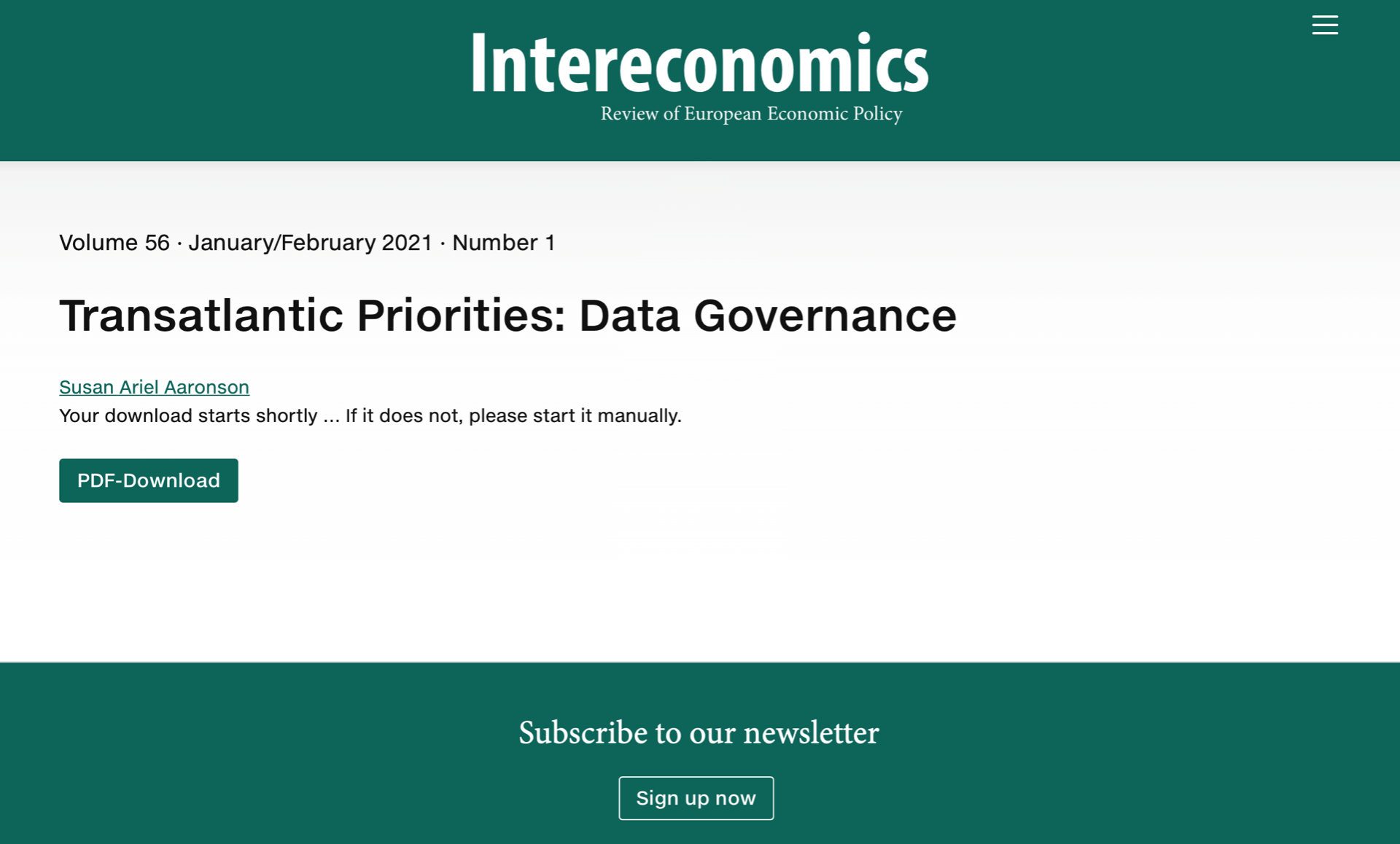On January 6, 2021, with the siege of the US Capitol, the world saw the direct and indirect effects of a man and a party willing to move fast and break democracy and global political stability. While we may be slow learners, this lesson will likely push America and Europe closer together. We have been reminded that our democracy is fragile, and we need our allies to help protect it. Throughout disruption, our allies have stood by and encouraged a return to normalcy, e.g. competition and collaboration. But while we may share many norms and objectives, the US and the EU do not share approaches to data governance. Some have even argued that the US, EU, and China are creating separate data realms.
Recent Publications
Trump 2.0: Clash of the tech bros
December 11, 2024 The tech giants courting Trump administration officials have conflicting interests. Getty Images In 2016, tariff man couldn’t care less about tech. Newly elected U.S. President Donald J. Trump knew that the people who created and ran America’s tech...
The Age of AI Nationalism and Its Effects
September 30, 2024 Policy makers in many countries are determined to develop artificial intelligence (AI) within their borders because they view AI as essential to both national security and economic growth. Some countries have proposed adopting AI sovereignty, where...
AI could become the ‘new steel’ as overcapacity risk goes unnoticed
July 24, 2024 Policymakers in the U.S., Saudi Arabia, Japan, the U.K., and the EU have announced huge public investments in artificial intelligence, which follow large private sector investments. Hu Guan – Xinhua – Getty Images In the 19th century,...













